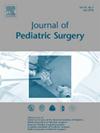Educational Outcomes in School-Aged Children With a History of Simple and Complex Gastroschisis are Poor Compared to Controls
IF 2.4
2区 医学
Q1 PEDIATRICS
引用次数: 0
Abstract
Background
Research on long-term cognitive outcomes of children with gastroschisis is limited and inconsistent. This study aimed to compare the educational outcomes of children with gastroschisis to age-matched controls using a population-based repository of educational data.
Methods
We performed a retrospective study of all children born with gastroschisis between 1991 and 2022. We compared the educational outcomes of children with simple and complex gastroschisis to date-of-birth matched controls using the: Early Development Instrument (EDI) and Grades 3, 7, and 8 assessments. We used odds ratio (OR) to compare the likelihood of children with gastroschisis failing an assessment compared to controls. We did subgroup analyses for simple and complex gastroschisis cases.
Results
A total of 208 gastroschisis cases and 2075 controls were included. There were 136 children with simple gastroschisis and 72 children with complex gastroschisis. Children with gastroschisis were more likely to fail a middle school assessment than controls (OR = 2.93, 95%CI = 1.73, 5.09). Even children with simple gastroschisis were more likely to fail a middle school assessment (OR = 2.66, 95%CI = 1.42, 5.13). Moreover, children with severe gastroschisis were at even greater odds of failing a middle school assessment than controls (OR = 4.57, 95%CI = 1.71, 13.60).
Conclusion
The academic performance of children born with gastroschisis, both simple and complex, is inferior to age-matched controls in middle school. Caregivers should be aware of the ongoing challenges that children born with gastroschisis face and seek early support.
Level of evidence
Prognostic, level III.
求助全文
约1分钟内获得全文
求助全文
来源期刊
CiteScore
1.10
自引率
12.50%
发文量
569
审稿时长
38 days
期刊介绍:
The journal presents original contributions as well as a complete international abstracts section and other special departments to provide the most current source of information and references in pediatric surgery. The journal is based on the need to improve the surgical care of infants and children, not only through advances in physiology, pathology and surgical techniques, but also by attention to the unique emotional and physical needs of the young patient.

 求助内容:
求助内容: 应助结果提醒方式:
应助结果提醒方式:


